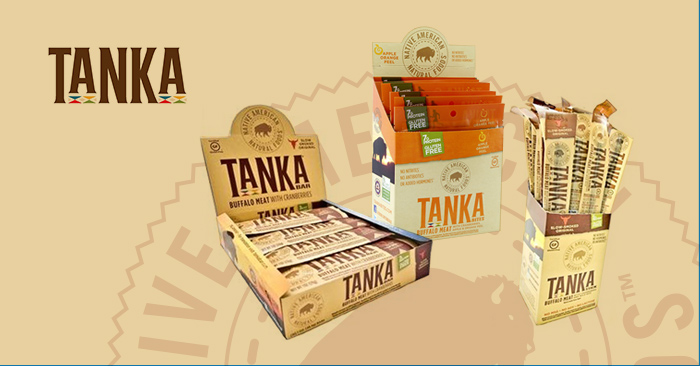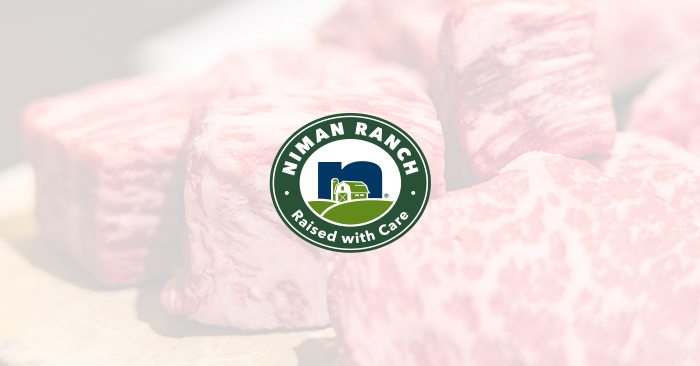Tanka Gains Investment, Looks to Rebuild Brand

Meat snack brand Tanka is looking to take a bigger bite of the category. Native American Natural Foods (NANF), parent company of Tanka, last week announced it had closed a $2.5 million round of funding, led by socially conscious investor Candide Group on behalf of donor-advised fund Libra Social Investment Fund (which contributed $500,000). Highland Associates, community development organization Clearinghouse CDFI and Rocky Mountain Natural Meats, the company’s longtime bison supplier, also took part. The raise came to help the brand in an ongoing struggle to retain shelf space in competition with other, often better-financed, brands in the category.
The raise includes a mix of cash, in-kind and debt conversion as well as operational support, and the first round represents about 60% of the total expected to close by the end of the year, according to Candide Group founding partner Aner Ben-Ami. As part of the deal, the majority of distributions or exit proceeds must primarily benefit Native owners, and if a secondary sale occurs it must be to a third-party Native owner, such as a rancher coop or tribal entity. The round marks the 13 year-old company’s first institutional capital raise — though it previously raised nearly $124,000 via a crowdfunding campaign in 2017.
Dawn Sherman, who has been with the company for eight years and became CEO last year, said the brand struggled to find investment partners that aligned with the company’s values. Ben-Ami said Libra Social Investment Fund, one of his firm’s clients, appreciated the connection to Native American communities and the focus on regenerative agriculture. Though the meat snacks category has become increasingly competitive, he added that NANF now has the right executive team in place to move forward.
“They have a lot of pieces in place to be successful: a really strong product and a super committed team and ecosystem of partners and suppliers,” he said. “They just really have everything it takes to carve out a niche or take space back in the category if they have the right financing in place.”
To start, the company has used the capital to hire CFO David Guendelman. The company’s priorities also include growing its distribution and transitioning its supply to 100% grass-fed, Native-raised bison.
The South Dakota-based, Native American-run snack brand produces meat-based protein bars, bites and sticks, all based on pemmican (‘wasna’ in the Lakota language), a Native American food staple made with bison, cranberries and wild rice. Each product is available in three flavors: Slow Smoked Original, Spicy Pepper and Apple Orange Peel, and retail for under $5.
The line, Sherman said, upholds the company’s original intent: bringing healthy foods to the Lakota people on South Dakota’s Pine Ridge Indian Reservation and supporting their local economy. Bison, she noted, is a “keystone species” and sacred to the Lakota people.
“[Wasna] is still used in ceremonies and celebrations,” she said. “We modernized it, but they’re familiar with it.”
Though it’s based on a centuries-old process, the platform can appeal to the broader health-conscious community. To do so, the brand plans to lean more into e-commerce and social media to attract a younger audience, Sherman said. Additionally, the company will adjust its packaging, adding paleo and keto callouts, while removing some of the claims currently found on pack. The brand also plans to swap its sugar-sweetened cranberries to ones sweetened with apple juice in order to lower sugar content. Tanka’s labels will be updated by 2021, and a larger brand refresh will happen in the next 18 months, said Sherman.
Such efforts could help the company reclaim its position in the meat snack market. Despite being on the market before the arrival of a new generation of meat bars, Sherman said, going against bigger players has been a huge challenge, especially over the last two years. Specifically, she noted, Epic Provisions (which launched in 2013) quickly dominated the meat bar category after it was acquired by General Mills in 2016. There’s also the need for increased consumer marketing to bring shoppers back to the category as brands including Country Archer and Wilde discontinued their meat bars, finding the product required too much explanation.
Tanka, which is sold in 2,400 stores, mostly in the natural channel, will also look to regain the distribution it lost in recent years due to the increase in competition. As more brands entered the category, Sherman said, the brand found it far harder to compete with bigger promotional budgets and marketing campaigns, which drove velocities. That list includes Whole Foods, which dropped the brand last year after carrying it for a decade, Sherman said.
“It was hard to lose that because it took us so long to get in there,” she said.
Although investment has become commonplace among category leaders, Tanka previously wanted to stay independent to maintain its authenticity, said Sherman, who is a member of the Lakota, Shawnee and Delaware tribes. It was crucial to find investors that would not only contribute dollars, but believe and invest in the company’s values. Sherman explained that although interested investors have visited the reservation over the past few years, many were not looking to support a declining brand.
“CPG or VC investors were not a fit for Tanka,” she said. “We are right in the middle of the reservation. We built this brand in our community. What you see is everything that comes with poverty.”
As the brand has vowed to stick to its authenticity, Sherman also noted other meat snack companies have benefited from Tanka’s concept and branding. For example, Epic also has launched a Bison Bar, she said.
“It’s really hard when you’re an authentic Native American brand to see it get diluted through the industry,” she said. “[But] how do you tell the story without bashing the [other] brands? We have big goals so we can’t let the competition side track us from what we really want to do, which is give back to our community.”

Also helping fuel the brand’s growth is an in-kind investment by premium meat company Niman Ranch, owned by poultry producer Perdue Foods. The meat company, which has developed its own network of 740 small- and mid-size independent family farmers, serves as a technical advisor for NANF, helping provide operational, sales, marketing and communications staff to the smaller brand until it can hire its own resources. Announced in January, that partnership was key to attracting new funding, Sherman said, giving investors confidence that NANF now has the strategic support to grow.
It’s yet to be determined if the two companies will collaborate on cobranded products, but NANF may help Niman Ranch develop a bison line, Kerri McClimen, Niman Ranch’s VP of communications noted. Currently, NANF sources most of its bison from a Colorado producer, as well as some surrounding Native areas, with about 75% of it grass-fed. The biggest goal for Tanka, Sherman said, is converting its supply to 100% Native-sourced, grass-fed buffalo under a new initiative, Tanka Resilient Agriculture, over the next two years. With Niman’s help, NANF also plans to adapt a full-animal utilization program to add value and honor the whole animal, which could mean expanding into frozen and fresh meat items either through Tanka or under new brands, Sherman said.
Aside from Tanka, NANF operates two other divisions which were included in the deal: the Tanka Co-op, a producer-owned cooperative, and Tanka Fund, a 501(c)(3) dedicated to supporting bison producers. The focus, however, will largely be on reviving the branded line of products and investing in a robust supply chain.
Tanka’s sales are already moving in a positive direction though, Sherman said. Because they have a longer shelf life of up to a year, consumers found the snacks to be an attractive stock-up staple. Sherman said Tanka’s products “flew off the shelves” during mid-March, straining the brand’s two copackers, who are based in Illinois and Missouri. The brand’s Amazon sales, in particular, ballooned before demand leveled out in May and June, she said. Now the goal is to keep these shoppers as loyal fans.
“The biggest thing is retaining those customers — a lot were trying it for the first time so we’re really excited about maintaining those,” Sherman said.
















